BHEX Mini
Ref Bari

Ref Bari
Physics MS, Brown
-
Analysis of Binary Black Holes via Neural Networks (under Prof. Brendan Keith, Brown)
-
Funded under NSF Neural DynAMO Grant
-
-
“Nitrogen Outgassing from Water Worlds” (R.Bari et. al., under review, The Astrophysical Journal 2025)
-
“Reflection from Relativistic Light Sails” (R. Bari, The Astronomical Journal 2024)
-
“Simulating the Action Principle in Optics” (R. Bari, The Physics Teacher 2023)
-
Spin Qubit CNN Researcher at the Meriles Condensed Matter Lab
-
“A Path Integral Derivation of Hawking Radiation” (MS Thesis)

Binary Black Holes
Physics MS, Brown
-
Analysis of Binary Black Holes via Neural Networks (Prof. Brendan Keith, Brown)



Brown Space Engineering


Spaceflight Heritage


EQUiSat
SBUDNIC
PVDX


Black Holes: An Intro

BHEX


EHT

LIGO







Penrose
Ghez
Einstein
Schwarschild
Oppenheimer
Kerr
Hawking

Black Holes: An Intro

BHEX


EHT

LIGO







Penrose
Ghez
Einstein
Schwarschild
Oppenheimer
Kerr
Hawking





Black Holes: An Intro




(1915)
Albert Einstein
Black Holes: An Intro

(1916)


Karl Schwarschild
Black Holes: An Intro

(1939)


Robert Oppenheimer
Black Holes: An Intro

(1960)


Roy Kerr
Black Holes: An Intro



(1975)
Stephen Hawking
Black Holes: An Intro

(1998)

Andrea Ghez
Black Holes: An Intro

(2015)
LIGO Collaboration

Black Holes: An Intro



(2017)
Event Horizon Telescope (EHT)
Black Holes: An Intro

(2031)
Black Hole Explorer Satellite (BHEX) Mission



Black Holes: An Intro

BHEX


EHT

LIGO







Penrose
Ghez
Einstein
Schwarschild
Oppenheimer
Kerr
Hawking

Black Holes: An Intro

BHEX


EHT

LIGO







Penrose
Ghez
Einstein
Schwarschild
Oppenheimer
Kerr
Hawking









Imaging a Black Hole

Black Hole (M87)

Black Holes: An Intro



(2017)
Event Horizon Telescope (EHT)
Black Holes: An Intro

(2031)
Black Hole Explorer Satellite (BHEX) Mission



Imaging a Black Hole


(The black hole explorer: Motivation and vision, Johnson et. al., 2024)



Imaging a Black Hole


Imaging a Black Hole


Imaging a Black Hole


Imaging a Black Hole



Spaceflight Heritage

SBUDNIC
PVDX


- 1U CubeSat (1.3 kg, 10x10x10 cm)
- Payload: High-Power LED Array + LiFePO4 Batteries (<6 kg)
- ADCS: Passive Magnetic Atitude Control System
- Power Generated: 1.3W (Top+Bottom Panels) & .7W (Side)
-
Total Cost: $5000
- All components built in-house at Brown Engineering Lab

EQUiSat
Spaceflight Heritage

SBUDNIC
PVDX


- 1U CubeSat (1.3 kg, 10x10x10 cm)
- Payload: High-Power LED Array + LiFePO4 Batteries (<6 kg)
- ADCS: Passive Magnetic Atitude Control System
- Power Generated: 1.3W (Top+Bottom Panels) & .7W (Side)
-
Total Cost: $5000
- All components built in-house at Brown Engineering Lab

EQUiSat
- 3U CubeSat (3 kg, 30x10x10 cm)
- Payload: Ham Radio Transceiver, 2 Cameras, Arduino Nano
- ADCS: Spring-Loaded + Aerodynamic Drag Sail
- Power Generated: 1.3W (Top+Bottom Panels) & .7W (Side)
-
Total Cost: $10,000
- 3D-Printed Components at BDW
Spaceflight Heritage

SBUDNIC
PVDX


- 1U CubeSat (1.3 kg, 10x10x10 cm)
- Payload: High-Power LED Array + LiFePO4 Batteries (<6 kg)
- ADCS: Passive Magnetic Atitude Control System
- Power Generated: 1.3W (Top+Bottom Panels) & .7W (Side)
-
Total Cost: $5000
- All components built in-house at Brown Engineering Lab

EQUiSat
- 3U CubeSat (3 kg, 30x10x10 cm)
- Payload: Ham Radio Transceiver, 2 Cameras, Arduino Nano
- ADCS: Spring-Loaded + Aerodynamic Drag Sail
- Power Generated: 1.3W (Top+Bottom Panels) & .7W (Side)
-
Total Cost: $10,000
- 3D-Printed Components at BDW
- 3U CubeSat (~6 kg, 30x10x10 cm)
- Payload: Perovskite Solar Panels + Robotic Arm + Digital Display
- ADCS: Magnetorquers
-
Total Cost: ~$30,000
- 3D-Printed Components at BDW
- CUBECOM S-Band Transceiver ($10,000)
Spaceflight Heritage

SBUDNIC
PVDX



EQUiSat
BHEX Mini



BHEX Mini



Imaging a Black Hole


Imaging a Black Hole





Imaging a Black Hole


Imaging a Black Hole



Imaging a Black Hole




Imaging a Black Hole





Imaging a Black Hole






99%
chance of failure
Reasons to Hope
- Current proposal demonstrates ...
- A second satellite does increase the interferometric resolution
Reasons to Hope
- Current proposal demonstrates ...
- A second satellite does increase the interferometric resolution
- The minimum weight for a second satellite is ~ 200 kg
Reasons to Hope
- Current proposal demonstrates ...
- A second satellite does increase the interferometric resolution
- The minimum weight for a second satellite is ~ 200 kg
- BHEX Team will meet in June
Reasons to Hope
- Current proposal demonstrates ...
- A second satellite does increase the interferometric resolution
- The minimum weight for a second satellite is ~ 200 kg
- BHEX Team will meet in June
- Publish final BHEX Mini proposal on arXiv
Reasons to Hope
- Current proposal demonstrates ...
- A second satellite does increase the interferometric resolution
- The minimum weight for a second satellite is ~ 200 kg
- BHEX Team will meet in June
- Publish final BHEX Mini proposal on arXiv
- Creating an Ivy Space Coalition of interested partners in BHEX Mini
Reasons to Hope
- Current proposal demonstrates ...
- A second satellite does increase the interferometric resolution
- The minimum weight for a second satellite is ~ 200 kg
- BHEX Team will meet in June
- Publish final BHEX Mini proposal on arXiv
- Creating an Ivy Space Coalition of interested partners in BHEX Mini



Reasons to Hope
- Current proposal demonstrates ...
- A second satellite does increase the interferometric resolution
- The minimum weight for a second satellite is ~ 200 kg
- BHEX Team will meet in June
- Publish final BHEX Mini proposal on arXiv
- Creating an Ivy Space Coalition of interested partners in BHEX Mini
Reasons to Hope
- Current proposal demonstrates ...
- A second satellite does increase the interferometric resolution
- The minimum weight for a second satellite is ~ 200 kg
- BHEX Team will meet in June
- Publish final BHEX Mini proposal on arXiv
- Creating an Ivy Space Coalition of interested partners in BHEX Mini
- Collaborating with Ben Hudson from BHEX
Reasons to Hope
- Current proposal demonstrates ...
- A second satellite does increase the interferometric resolution
- The minimum weight for a second satellite is ~ 200 kg
- BHEX Team will meet in June
- Publish final BHEX Mini proposal on arXiv
- Creating an Ivy Space Coalition of interested partners in BHEX Mini
- Collaborating with Ben Hudson from BHEX
- Descoping: AGN + Space-Space VLBI
BHEX Mini Timeline




Thursdays (6 PM) + Sundays (1:30 PM)
2 Weeks: 4/15-4/30 | Literature Review
BHEX Mini Timeline

Thursdays (6 PM) + Sundays (1:30 PM)
2 weeks: 5/1-5/15 | Simulations



BHEX Mini Timeline

Thursdays (6 PM) + Sundays (1:30 PM)
2 weeks: 5/15-5/30 | Systems Design


BHEX Mini

Physics
Engineering
Imaging
BHEX Mini

Physics
Imaging

Engineering
BHEX Mini

Physics
Imaging

Engineering

BHEX Mini

Physics
Imaging

Engineering

Physics

Questions:
- What is the interferometric signature of the photon ring?
- What are the orbital constraints on BHEX Mini if it seeks to detect n = 1 photon ring?
- What is the geometry of a rotating black hole?
- What is the photon ring?
- Why is the photon ring "quantized" into subrings?
- What is the black hole shadow, and how is it different from the photon ring?
- What is the photon ring shape predicted by the Kerr Metric?
- How exactly can constrain a black hole's spin by detecting the photon ring?
- Can BHEX detect hawking radiation?
- What is the critical curve for a photon ring?
Physics



Physics

BHEX Mini

Physics
Imaging
Engineering

Engineering

Questions:
- How can we deploy a ~3m radio antenna from a CubeSat form factor?
- What cryogenics (ie., MEMs) are compatible with a CubeSat, and will maintain antenna at ~4.5 K?
- What are the mass + power requirements breakdown for BHEX & BHEX Mini?
- Total cost for BHEX Mini?
- How does interforemetric resolution scale with the diameter of the radio antenna?
- How would BHEX Mini connect with ground stations? How would it connect with the main BHEX satellite?
- What type of radio antenna would BHEX Mini have? (i.e., Phased Array, Standard, etc.)
- What is the temperature requirement for the antenna?
- How do you put a radio antenna on a CubeSat?
- What type of cyrocooler will maintain the antenna at the required temperature?
Engineering



Engineering


BHEX Mini

Physics
Imaging
Imaging
Questions:
- How will BHEX Mini interface with the main BHEX satellite and the Event Horizon Telescope?
- What is the simplest possible way to do VLBI on a CubeSat?
- How does Very-Long Baseline Interferometry (VLBI) work?
- aka How do multiple radio telescopes combine into a single large telescope?
- Why does going into space decrease the angular resolution?
- What configuration of BHEX + BHEX Mini would minimize the angular resolution?
Imaging


Engineering


BHEX Mini

Physics
Imaging



Literature Review (4/15-4/30)
Systems Design (5/15-5/30)


Simulations (5/1-5/15)






Literature Review (4/15-4/30)
Systems Design (5/15-5/30)


Simulations (5/1-5/15)





Rick Fleeter
Ben Hudson
Agenda
- Meeting with Jeffrey Olson (Lockheed Martin Cryocooler Engineer)
- Meeting with Lucas Anderson (Orion Space Systems Engineer, CubeSat Cryostat Engineer)
- Meeting with SEDS (National Chapters ➡️ Team)
- Simulate BHEX Mini + BHEX at LEO/MEO with Ben Hudon's SpaceVLBI
Agenda
Meeting with Jeffrey Olson (Lockheed Martin Cryocooler Engineer)







4 Core Challenges
VLBI on a CubeSat
Radio Antenna
Data Downlink
Cryocooler
Pointing Accuracy
Radio Antenna
Data Downlink
Cryocooler
Pointing Accuracy


Radio Antenna
Data Downlink
Cryocooler
Pointing Accuracy



ACCS: Active CryoCubeSat
~60 K
6U (6 kg)
Radio Antenna
Data Downlink
Cryocooler
Pointing Accuracy



ACCS: Active CryoCubeSat
~60 K
6U (6 kg)

MIT TBIRD
CubeSat
200 Gb/s
6U (6 kg)
Radio Antenna
Data Downlink
Cryocooler
Pointing Accuracy



ACCS: Active CryoCubeSat
~60 K
6U (6 kg)

MIT TBIRD
CubeSat
200 Gb/s
6U (6 kg)

PVDX
~1° pointing
jitter tolerance



Literature Review (4/15-4/30)
Systems Design (5/15-5/30)


Simulations (5/1-5/15)





Rick Fleeter
Ben Hudson
Preliminary Simulations of BHEX (0 Degree Inclination)



Preliminary Simulations of BHEX (20 Degree Inclination)



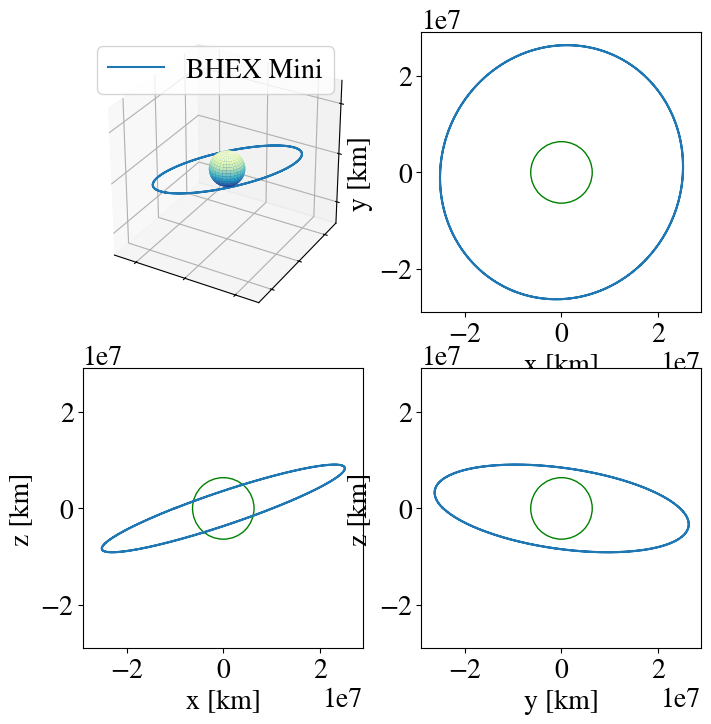
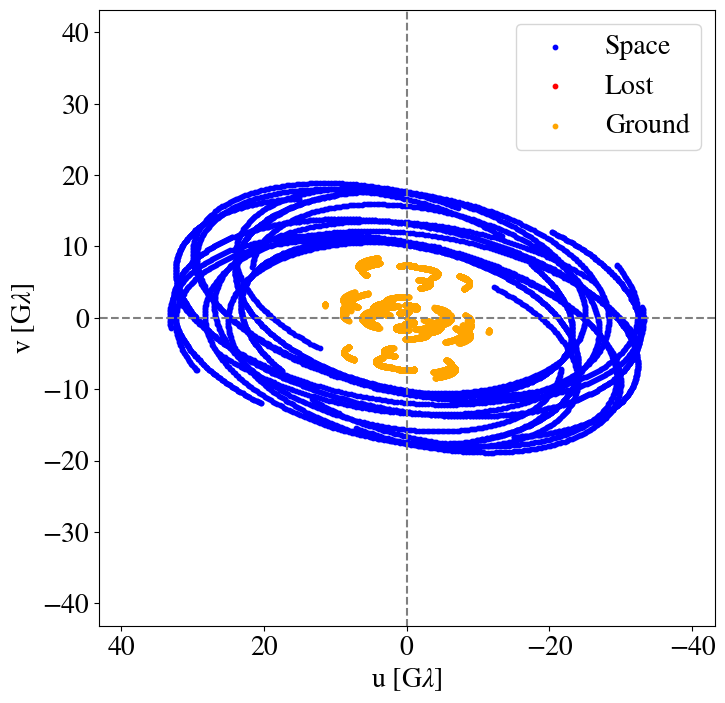
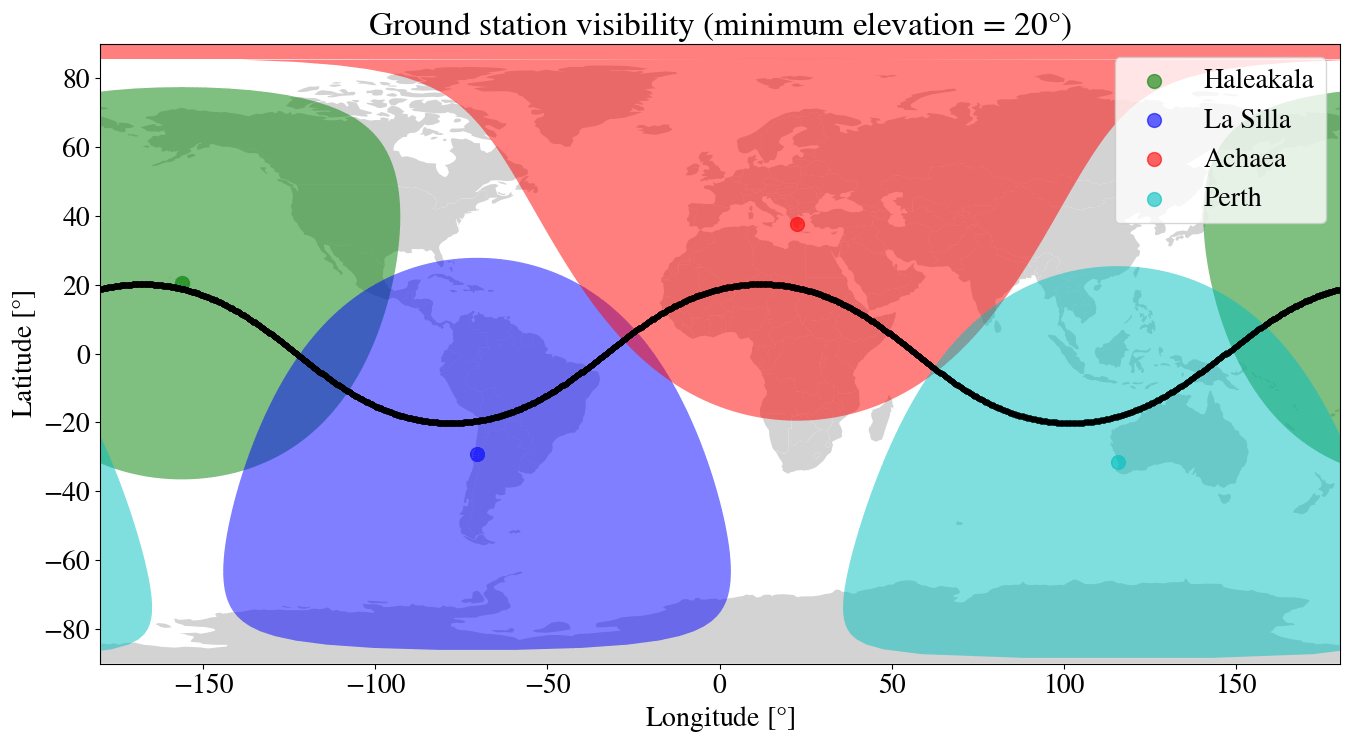
Preliminary Simulations of BHEX (40 Degree Inclination)






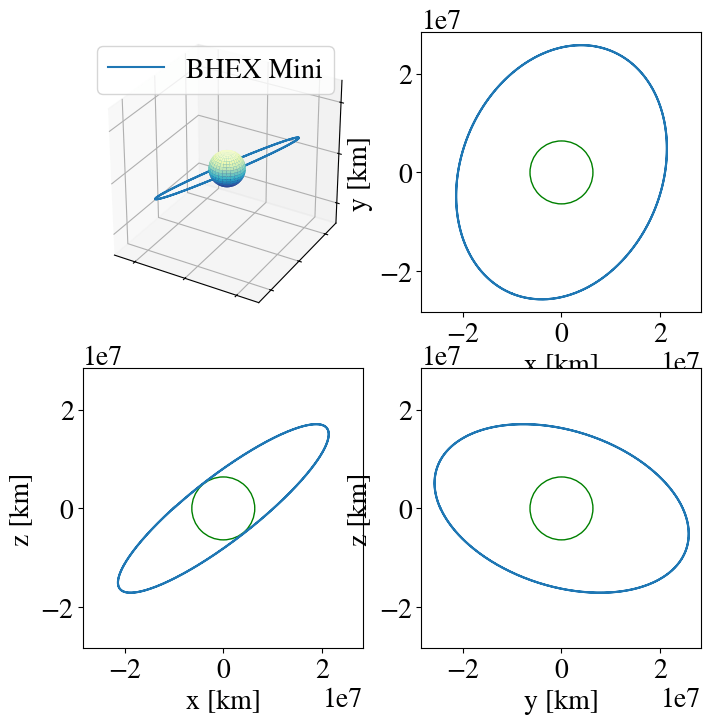
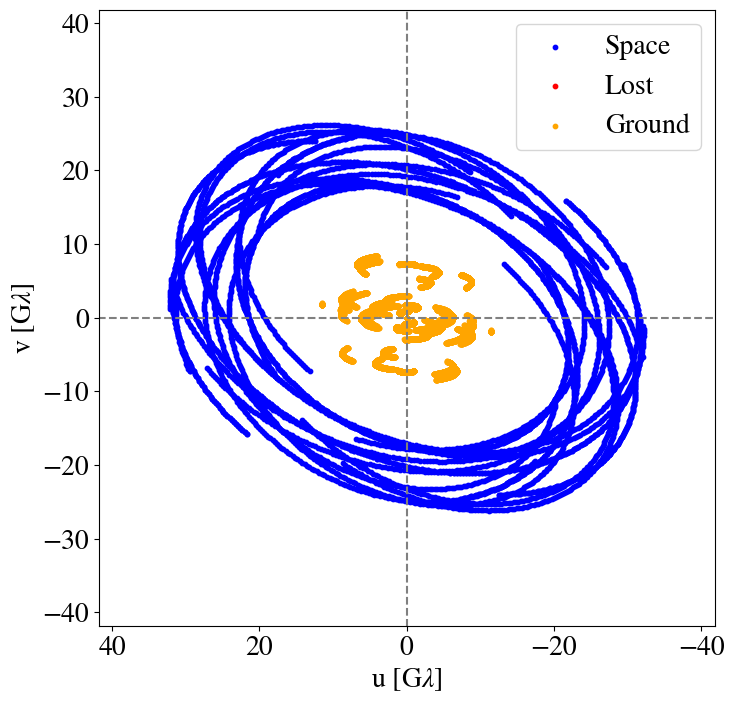
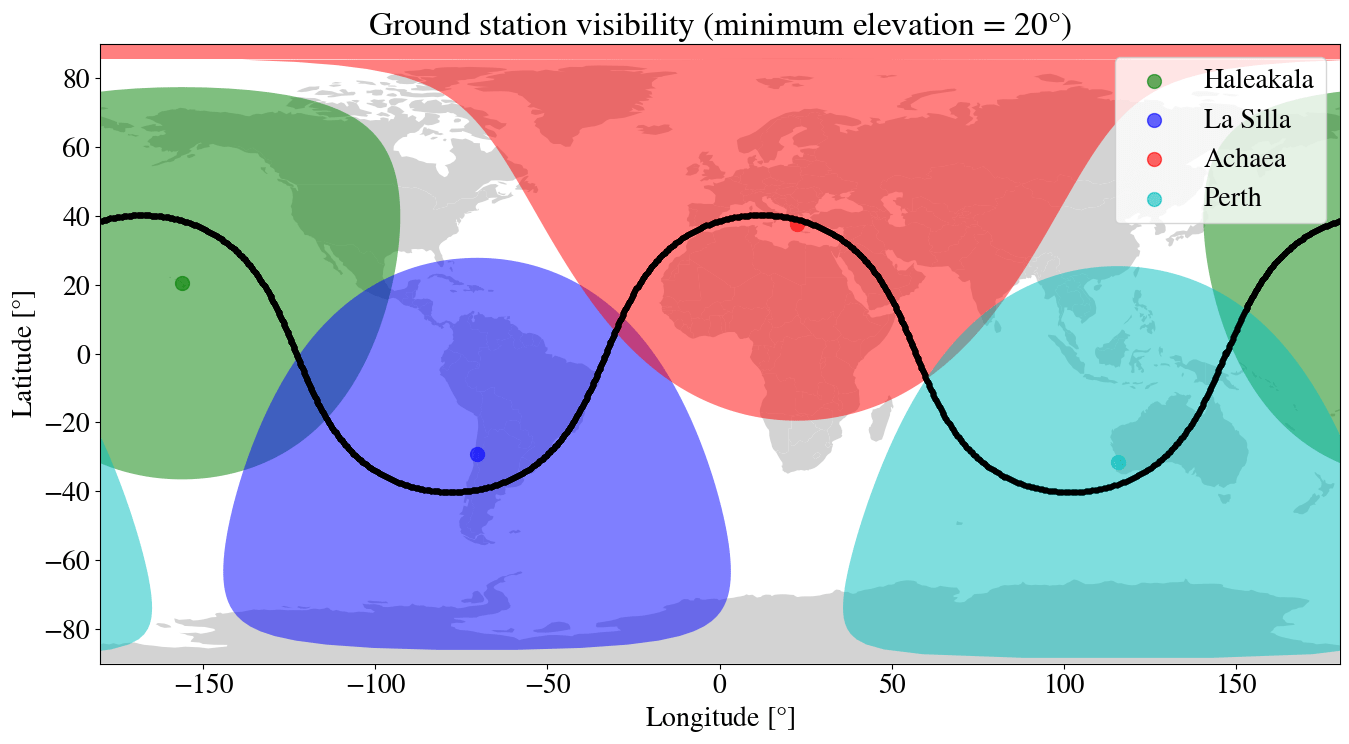
Preliminary Simulations of BHEX (60 Degree Inclination)









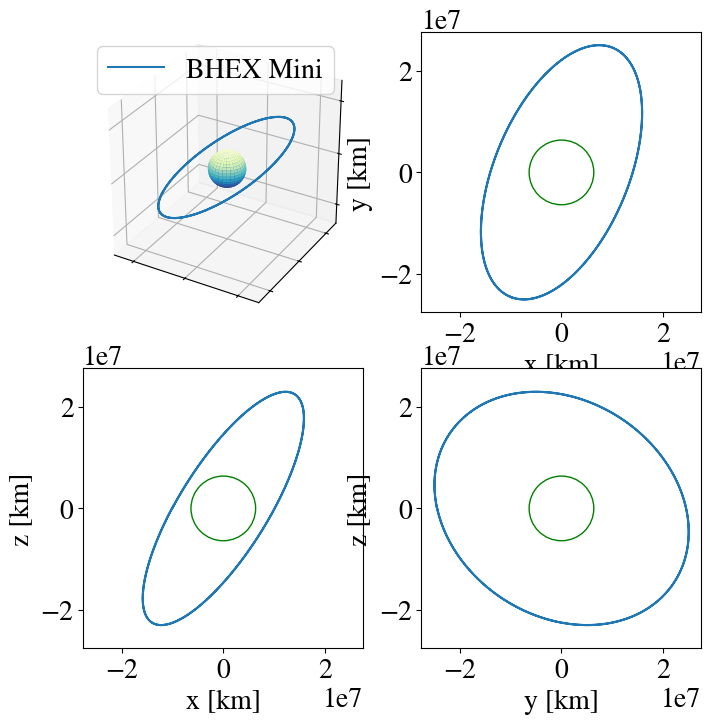
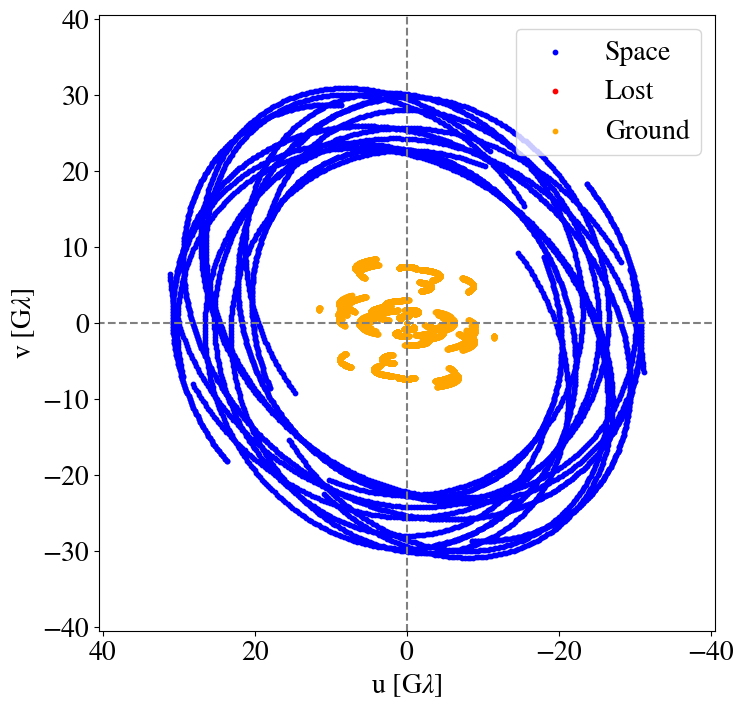
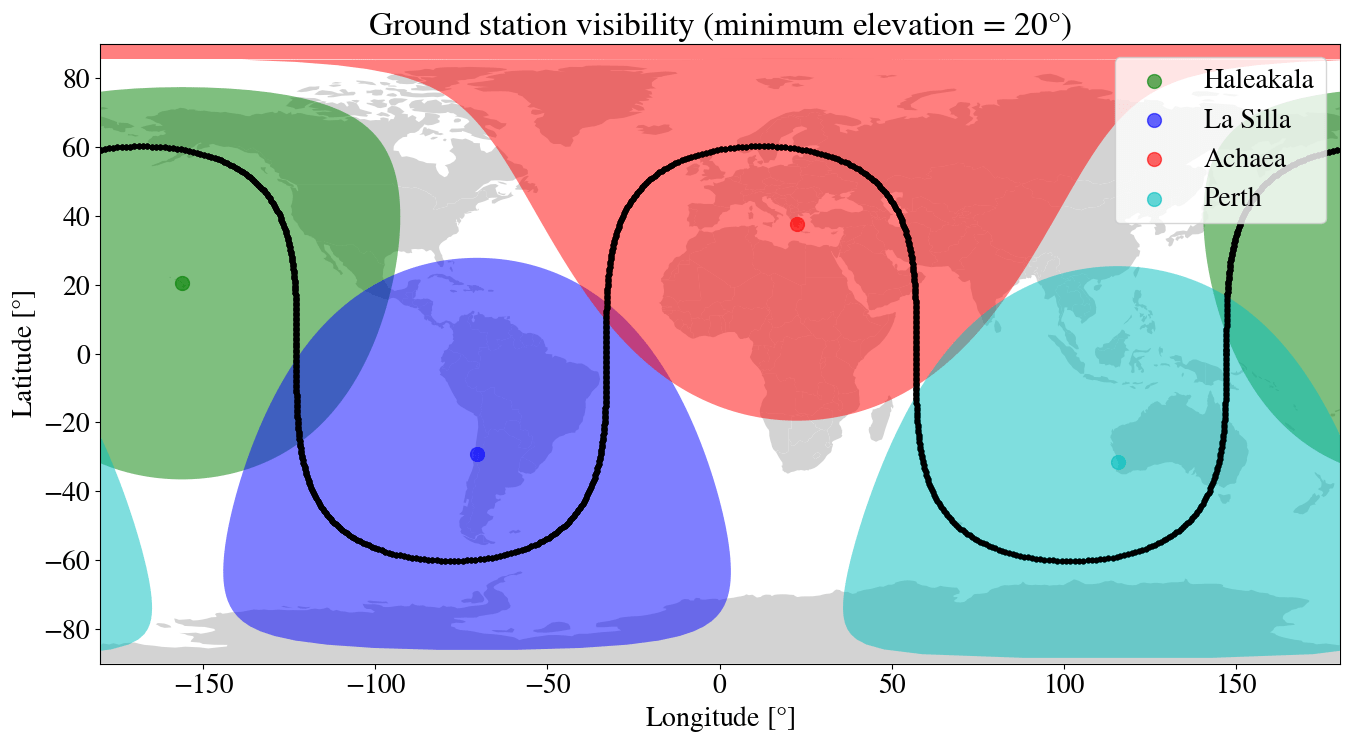
Preliminary Simulations of BHEX (80 Degree Inclination)












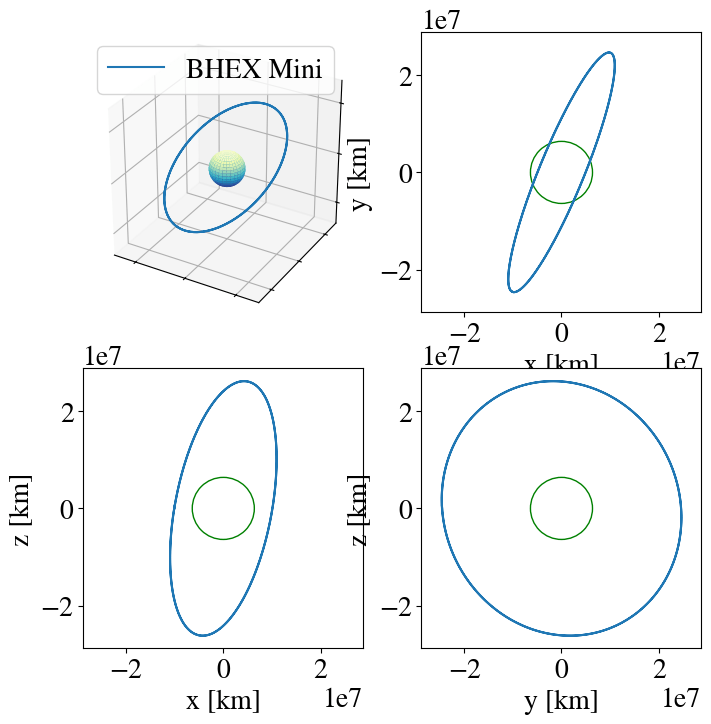
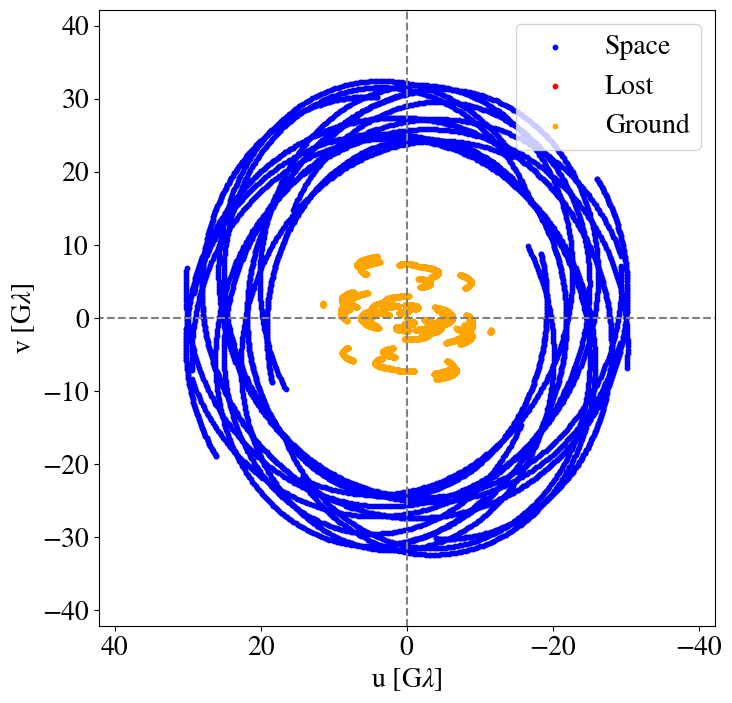
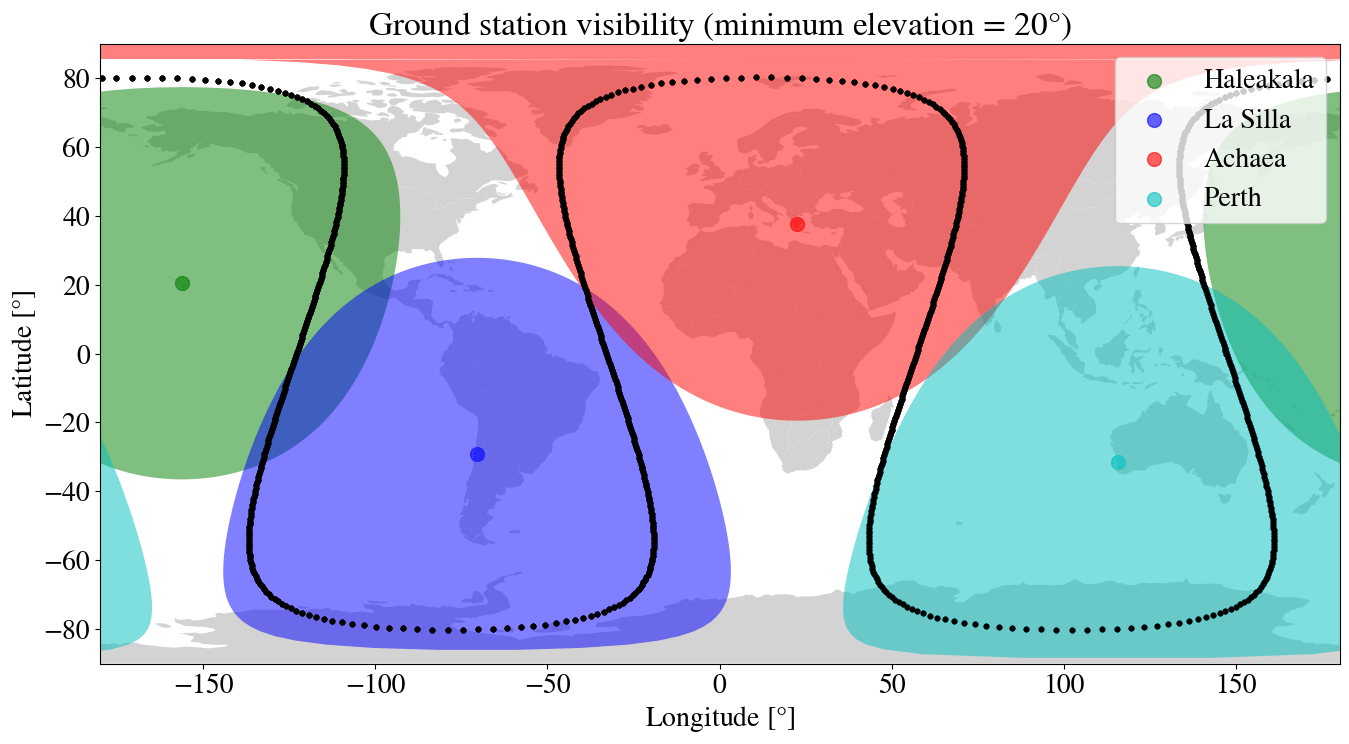
Radio Antenna
Data Downlink
Cryocooler
Pointing Accuracy



ACCS: Active CryoCubeSat
~60 K
6U (6 kg)

MIT TBIRD
CubeSat
200 Gb/s
6U (6 kg)

PVDX
~1° pointing
jitter tolerance
BHEX Mini | Cryocooler Talk
By Ref Bari
BHEX Mini | Cryocooler Talk
- 256


